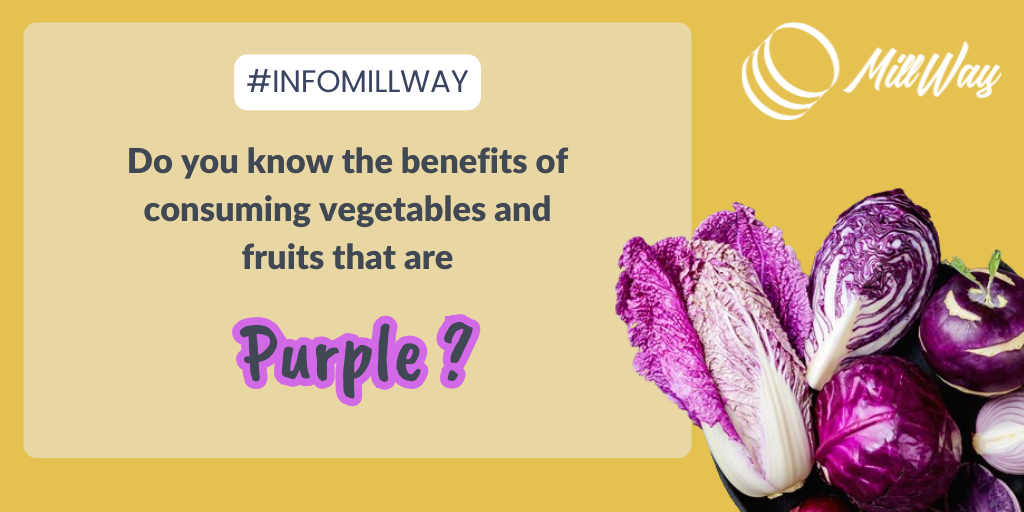Benefits of Purple-Colored Fruits and Vegetables
Purple-colored fruits and vegetables are rich in anthocyanins, compounds that give them their purple color and have antioxidant, anti-inflammatory, antibacterial, and anticancer effects.
Types of Purple-Colored Fruits
- Pomegranate: Purple pomegranates contain nutrients such as carbohydrates, fiber, and antioxidants.
- Red Dragon Fruit: Red dragon fruit is rich in vitamin C and antioxidants.
- Grapes: Grapes are rich in vitamin C, Vitamin K, Potassium, Fiber, and Antioxidants.
Types of Purple-Colored Vegetables
- Purple Spinach: Purple spinach has nutrients similar to green spinach but contains higher antioxidant effects.
- Purple Cabbage: Purple cabbage contains anthocyanins, carotenoids, flavonoids, and vitamin C, acting as antioxidants.
- Purple Eggplant: Purple eggplant contains nasunin, which acts as an antioxidant and anti-inflammatory.
- Purple Carrot: Purple carrots contain fiber, vitamin A, vitamin C, potassium, and manganese, which can help with weight loss and boost immunity.
- Purple Corn: Purple corn contains anthocyanins, caffeic acid, vanillic acid, and quercetin, which may reduce the risk of obesity and cardiovascular diseases.
Vegetables offer numerous benefits for the body. Here are some of them:
General Benefits
- Prevents chronic diseases: diabetes, heart disease, stroke, and cancer.
- Boosts the immune system.
- Helps reduce body weight.
- Improves digestive health.
- Helps reduce stress and anxiety.
Specific Benefits
- Green vegetables (spinach, broccoli): rich in vitamins A, C, and K, as well as antioxidants.
- Red vegetables (tomatoes, peppers): rich in lycopene, an antioxidant that protects the skin.
- Purple vegetables (eggplant, purple cabbage): rich in anthocyanins, antioxidants that protect the heart.
- White vegetables (garlic, onions): rich in vitamin C and antioxidants.
Consumption Tips
- Eat fresh or cooked vegetables.
- Consume 5 servings of vegetables per day.
- Choose colorful vegetables.
- Avoid vegetables that are not fresh or are rotten.
- Include vegetables in your daily menu.
Sources
- World Health Organization (WHO).
- American Heart Association (AHA).
- National Institute of Health (NIH).
- Journal of Nutrition and other health sources.

